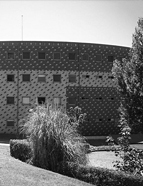

The historical study of law has deep roots in the past. However, the discipline of legal history at the University of Coimbra only dates back to the second half of the 18th century. This phenomenon is not unique to our country and was also noted by many authors in Europe around the same time, highlighting the relative modernity of this scientific field. The reasons why conditions were not favourable for the development of legal history until the mid-1700s are well-known and require no detailed explanation. Roman and canon law exerted a suffocating dominance, filling the entirety of university education and feeding the most expressive legal literature. It was as if both these law fields stifled any interest in other legal perspectives at birth. Occasionally, there might have been a passing mention of a Roman chapter on the origins of law, but this did not herald the flourishing of a history of law. Instead, under a clearly dogmatic guise, scholars were deflected to studies of Portuguese law. Above all, the inability to match the formative grandeur of ius romanum led to the blatant subordination of national law. In this context, it is unsurprising that the past of a law, whose present was largely considered obsolete, was neglected. Moreover, the field of historiography itself did not present promising prospectives, suffering from significant weaknesses and a clear absence of a philosophical conception of history.
16th-century legal humanism promised much for the historical study of national law. The diverse origins of the legal materials compiled by Justinian was one of the Renaissance jurists' most absorbing concerns. They sought to identify the authentic precepts of classical ius romanum. Consequently, the historical perspective applied to the Justinian compilation led, to some extent, to the relativisation of the value of Roman law, considering the Corpus Juris Civilis as a product of a specific historical context, thus denying the meta-juridical and eternal valuation of Roman norms. The Renaissance movement undoubtedly opened up a favourable horizon for a historical orientation in legal studies. However, it should be noted that in the context of Portugal, the flash of humanism in legal education was but fleeting. The exclusive devotion to the dogmatic teachings of Roman and canon law continued. Hence, few authors during the 16th and 17th centuries explored the antiquities of Lusitanian law. Notably, however, the historical angle of public law awakened considerable interest. Under the auspices of the humanist revival, André de Resende, a multifaceted erudite character, an archaeologist and composer of merit, who was on close terms with Erasmus and Nicolau Clenardo, devoted himself to the organisation of ancient Hispania and is rightfully considered the founder of peninsular public law history. The desire for Restoration also saw a group of jurisconsults dedicated to various historically legitimist public issues in support of the kingdom's independence, with João Pinto Ribeiro emerging as a prominent figure. Entering the 18th century, historiography benefited from a renewed impetus in the wake of the establishment of the Royal Academy of History and the diligent efforts of its members.
